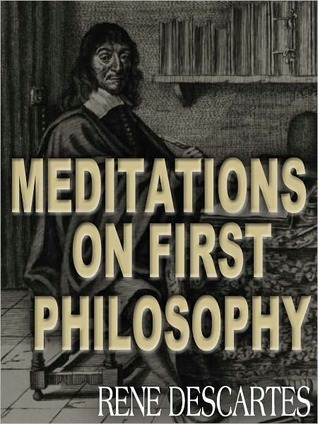More on this book
Community
Kindle Notes & Highlights
Read between
November 7 - December 16, 2021
Whether ideas need a formal cause for their existence; God as self-caused; that we have the idea of an infinite being; the ontological argument for God’s existence; and the real distinction between mind and body.
a single bloc of certainty, without any cracks, in which everything is arranged such that no truth can be taken away without the whole collapsing.
This presents Descartes with a dilemma: he cannot give up the motion of the earth without abandoning his whole system, but the motion of the earth, which he
thinks has been supported by “very certain and very evident demonstrations,” has been prohibited by the Church;
namely, God and the soul—are chief among those that ought to be demonstrated with the aid of philosophy rather than theology. For although it suffices for us believers to believe by faith that the human soul does not die with the body, and that God exists,
faith is a gift from God, the very same one who gives the grace that is necessary for believing the rest can also give the grace to believe that he exists.
convinces them that the soul dies with the body, while it is by faith alone that they hold the contrary position.
many irreligious people who refuse to believe that God exists and that the human mind is distinct from the body—
its errors would be corrected by you
that the mind is distinct from the body
we can doubt all things,
the mind, through the exercise of its own freedom, supposes the nonexistence of all those things about whose existence it can have even the least doubt.
soul is immortal is that we form a concept of the soul that is as lucid as possible and utterly distinct from every concept of a body.
body,
is a substance and hence it too can ...
This highlight has been truncated due to consecutive passage length restrictions.
the human body does become something different, merely as a result of the fact that a change in the shape of some of its parts has taken place. It follows from these considerations that a body can very easily perish, whereas the mind by its nature is immortal.
I will apply myself earnestly and unreservedly to this general demolition of my opinions.
undermining the foundations will cause whatever has been built upon them to crumble of its own accord, I will attack straightaway those principles which supported everything I once believed.
I have noticed that the senses are sometimes deceptive;
But on what grounds could one deny that these [19] hands and this entire body are mine? Unless perhaps I were to liken myself to the insane,
the things seen during slumber are, as it were, like painted images, which could only have been produced in the likeness of true things, and that therefore at least these general things—eyes, head, hands, and the whole body—are not imaginary things, but are true and exist.
For whether I am awake or asleep, 2 plus 3 make 5, and a square does not have more than 4 sides. It does not seem possible that such obvious truths should be subject to the suspicion of being false.
Therefore I suppose that everything I see is false. I believe that none of what my deceitful memory represents ever existed. I have no senses whatever. Body, shape, extension, movement, and place are all chimeras. What then will be true? Perhaps just the single fact that nothing is certain.
But there is some deceiver or other who is supremely powerful and supremely sly and who is always deliberately deceiving me. Then too there is no doubt that I exist, if he is deceiving me.
thought exists; it alone cannot be separated from me. I am; I exist—this is certain.
if I were to cease all thinking I would then utterly cease to exist.


